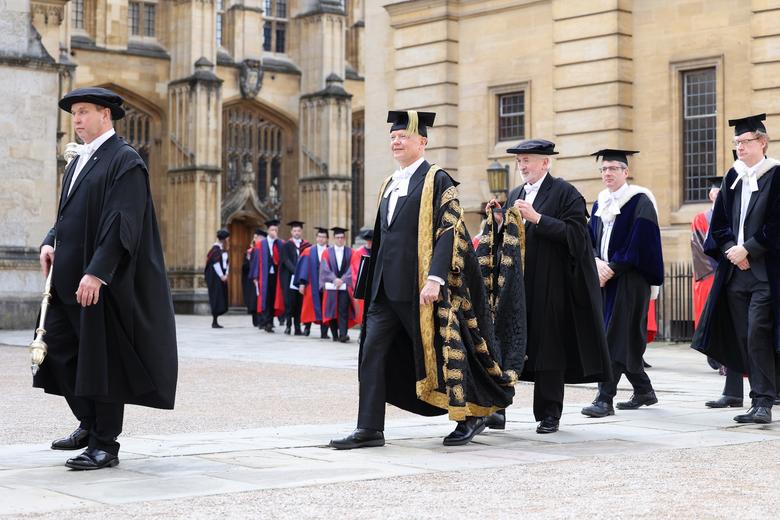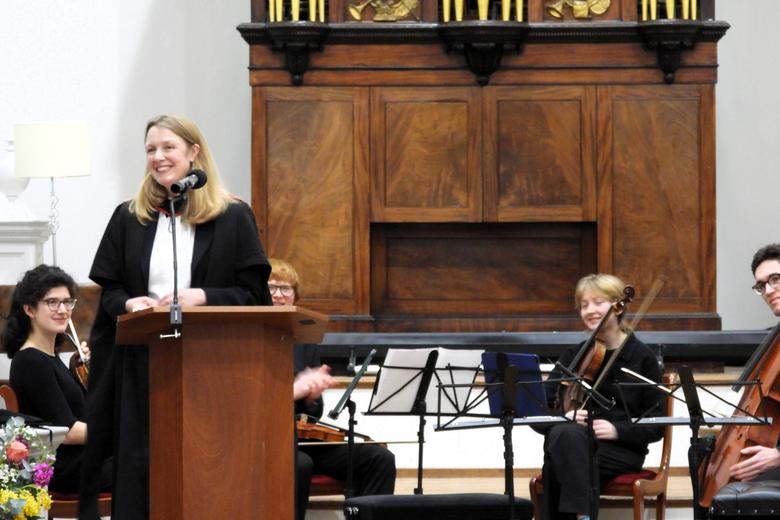OXFORD'S DRAGONS' DEN

Credit: Jack Whitehead for The Oxford Foundry
OXFORD'S DRAGONS' DEN
On 25 Sept, Oxford Foundry barnstormed a magnificent pitch party…
Published: 1 October 2018
Author: Richard Lofthouse
Share this article
A recently begun University start-up incubator programme, called L.E.V8 (‘ELEVATE’), culminated on September 25th with real pitching to investors by the first cohort of nine start-ups.
While it wasn’t Dragon’s Den in the sense of being a live haggle, it was in the same vein, where the start-up founders had less than five minutes to communicate often complex ideas to private investors and industry specialists.

The assembled entrepreneurs following their pitches. Central three people are Dean Tufano of the Saïd Business School; OXFO Director Ana Bakshi, and Reid Hoffman, LinkedIn founder
Credit: Jack Whitehead for The Oxford Foundry
Subsequent conversations and proto-negotiations were then encouraged at a lively after-party supplied with pizza and sushi.
Situated near the University’s Saïd Business School, its main partner, the Oxford Foundry (also ‘OXFO’) overflowed with attendees, creating an electric atmosphere.
The Vice-Chancellor, Professor Louise Richardson addressed the audience alongside Twitter co-founder Biz Stone and OXFO Director Ana Bakshi.
All nine pitches were made within an hour and no one exceeded their five-minute slot. Invariably the start-ups fielded diverse teams stacked with expertise at the doctoral or post-doctoral level. These are real companies solving massive global problems, most having already raised significant sums of seed money.
- Albus Health – developing an automated, real-time home monitoring system to predict asthma attacks up to days before they happen, enabling patients to self-manage their condition at home and take measures to prevent an attack.
- Util – building a new way to analyse company and fund performance, incorporating financial and non-financial performance metrics into a new bottom-line metric for the responsible investor.
- Scoodle – connects people who want to learn with people who can teach them. Students can ask questions on any subject, get answers from tutors and follow up by booking lessons or joining online or face-to-face classes.
- Oxford Digital Healthcare – has developed a medical device (app and web) to improve access to healthcare, focused on musculoskeletal disorders and on improving physiotherapy remedies.
- EcoSync – optimises buildings’ performance, reducing energy consumption through software-hardware integration while addressing three issues, pollution, cost and wasted energy.
- Boresha – offers a user-friendly digital tool for East African farmers, traders, and processors to manage their supply chain while providing real-time alerts and business intelligence reports.
- PodHealth – a prevention-led approach to healthcare giving people greater control over their well-being.
- Metronome – an energy intelligence company that aims to be the world’s largest green energy supplier, focussed in particular on the farming community and a novel approach to demand-side response.
- Veratrak – offers a document collaboration and workflow management platform that allows pharmaceutical supply-chain companies to communicate sensitive documents and work together with greater efficiency, security and auditability.
All pitches came from Cohort 1 of the OXFO L.E.V8 accelerator, March-September 2018.
The Oxford Foundry is the University’s new entrepreneurship centre, and supports all 24,000 students across the University. One of the key themes is enhancing employability through nurturing an entrepreneurial mindset.
Twitter @oxfoundry; Instagram @oxfordfoundry; Facebook @oxfound















